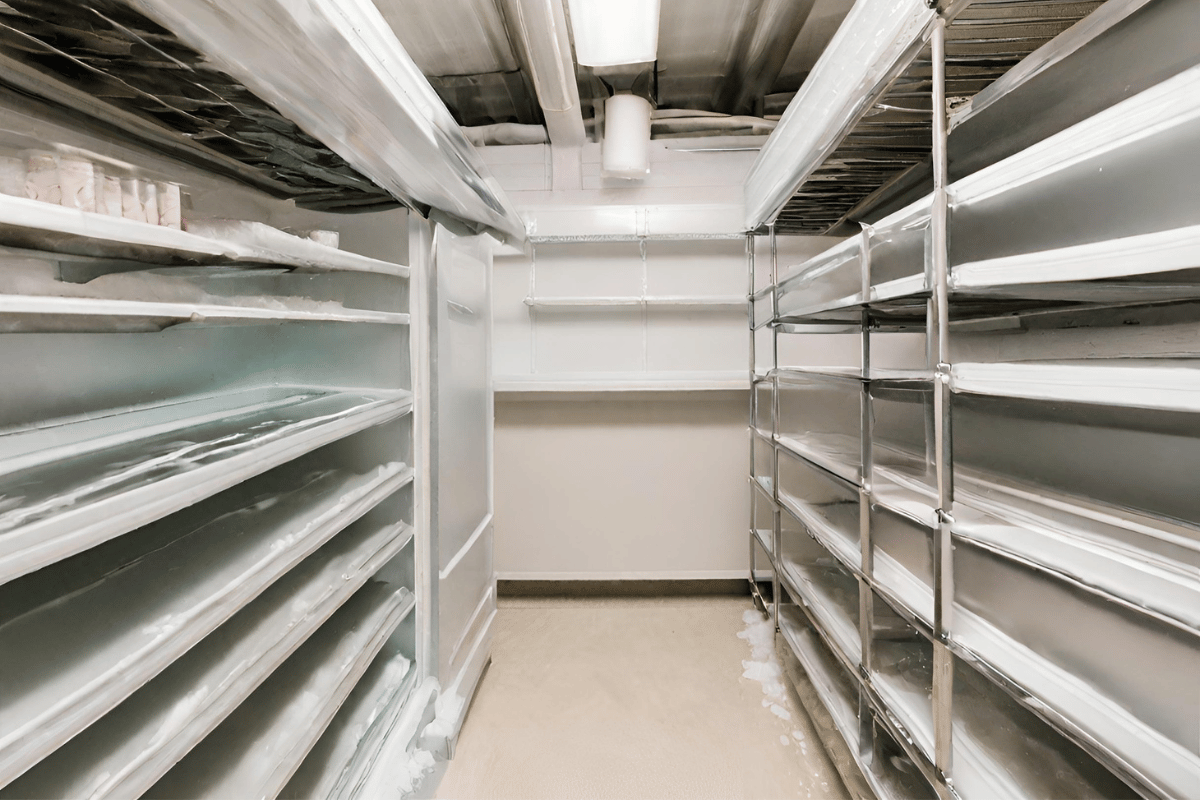
Everyone loves a winter wonderland, however, when the inside of your walk-in freezer begins to look like the landscape from Rudolph, you may find yourself in anything but a jolly mood. This can force your compressors to work overtime, cause freezer burns on your product, result in structural damage, and cost your organization a significant amount of money. To help prevent or fix this, you’ll need to understand why you’re seeing ice buildup in your commercial freezer.
How Moisture Finds Its Way in
For there to be ice, there must first be water. Naturally you have some level of moisture in your walk-in freezer and that is perfectly normal, but an excess amount of moisture can lead to ice buildup and the issues mentioned above. How does moisture find its way into your freezer? For this answer, we can turn to the second law of thermodynamics.
We won’t bore you with all the specifics, but in general, temperature always flows from hot to cold. So, when you have a cold storage facility like a freezer – and there is warmer air surrounding this freezer – it wants to find a way in. Nothing personal, it’s just science. Imagine a cup of Starbucks’ iced coffee sitting on your desk. After time passes, the outside of the plastic cup will start to collect condensation. This is the same rule of nature playing out. The warm moisture wants to find a way in and is collecting on the outside of the cup.
Now, you may say, “That’s great, but my commercial freezer space is insulated. Why is there ice?” The simple answer, it may not be as well insulated as you think. This moisture on the outside can find the smallest flaw in your insulation and make its way in. Once it is in, it finds the coldest spots, condenses, and turns into ice.
Need help making sure ice won’t make its way into your walk-in freezer? Our team of experts would love to talk.
How Moisture Damages Your Walk-In Freezer
There are three main ways moisture can cause headaches in your commercial freezer environment:
- Forcing the freezer to work harder by allowing warm air in, costing you money in overhead costs,
- Causing freezer burn on your product,
- & Causing structural damage.
The top two seem self-explanatory, but there are some important pieces of information regarding structural damage we think you should be aware of. As we know, for this moisture to find its way into your commercial freezer, there must be a gap or crack in your insulated solution. As this moisture makes its way into this space, and other spaces inside of your freezer, it can begin to break down structural integrity. Picture the Grand Canyon, a great example of water’s destructive power.
With this added moisture attacking your commercial freezer’s insulation – and exposing your product and freezer’s technical components to potential damage – the headaches only grow. Maintenance costs, the cost to run your freezer, lost product costs – all of these are likely to increase at a growing rate. Not to mention the downtime and manpower invested to manage these issues.
How to Stop Ice Buildup in Your Commerical Freezer
To stop this moisture and ice from building up in your commercial freezer, you must ensure that your insulation allows no opportunity for gaps and cracks. Common insulation methods such as spray foam require an expert eye to inspect every possible nook and cranny – and even with Sherlock Holmes himself behind the foam – you will rarely get a full-proof seal. Additionally, this foam deteriorates over time, reducing the R-value and opening chances for moisture leaking.
Our recommendation – and we may be a little biased – is to use Insulated Metal Panels (IMPs) for your commercial freezer insulation. IMPs, because they are structural in nature, help you avoid the cracks and gaps that you see in other insulation solutions. These also do not break down over time, keeping moisture out and maintaining a consistent R-value. Important reminder, in some cases R-value is regulated and required.
At PermaTherm, we believe that your project is more important than our product. If you would like to discuss the insulation of your walk-in freezer space, or any another cold storage facility, our team of experts would be happy to learn more about your needs. Call us today at 706-623-0530 or go to our contact page to get the conversation started.

Recent Comments